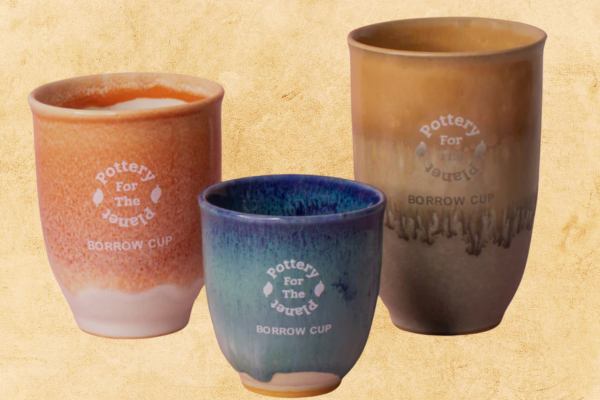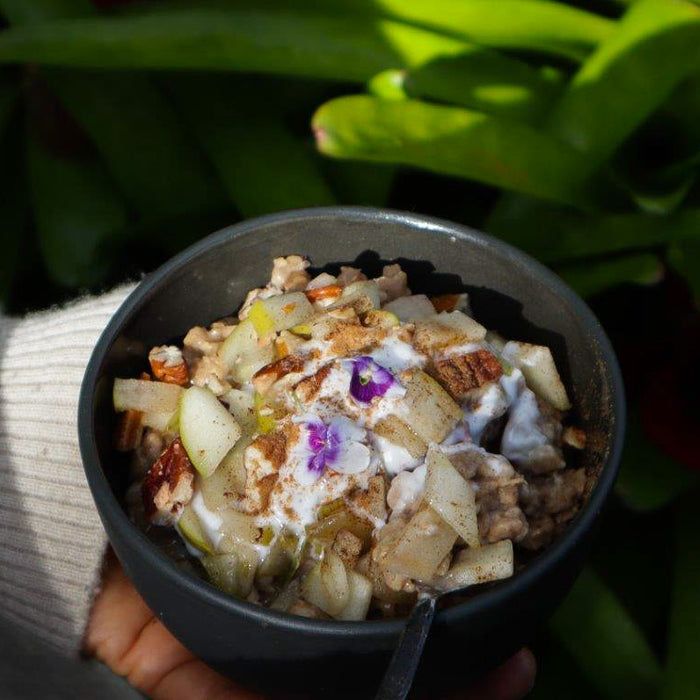When next visiting your favourite café, how about bringing your own reusable coffee cup or slowing down and taking some time to enjoy your morning coffee in a real cup at the café. Why? Single-use disposable coffee cups are a major environmental concern.
Coffee culture is a global phenomenon, with millions of people starting their day with a hot cup of coffee (or other hot drink). But behind the comforting aroma and caffeine boost lies an inconvenient truth: the environmental impact of single-use coffee cups. In this blog, we'll delve into the issues associated with disposable coffee cups, shedding light on their negative consequences and exploring more sustainable alternatives.
Did you know that single use coffee cups end up in landfill?
Single-use coffee cups are a significant contributor to the growing problem of plastic waste. Most of these cups are made from a combination of paper and a fused-on thin plastic or PLA lining to prevent leaks, making them impossible to recycle or compost.
As a result, a staggering number of coffee cups end up in landfill, where they can take hundreds of years to decompose. In Australia alone, 2.7 million single-use coffee cups are thrown away every day. This adds up to 1 billion coffee cups in landfill every year, just in Australia.
Even though many cups are marked ‘compostable’ or ‘biodegradable’ this means that they can only be processed by commercial or industrial composting facilities. There are a few Local Councils in Australia that accept PLA compostable packaging and coffee cups - see this LIST for more information on these Councils. It is also important to note that any compostable or biodegradable cups or takeaway packaging definitely cannot be composted at home as the microplastics will leach into your garden.
The Recycling Myth
Despite the recyclability symbol printed on some coffee cups, the reality is far from the truth. Most recycling facilities are not equipped to process these cups efficiently due to the plastic lining. Moreover, the cups may be contaminated with residual coffee or other liquids, further complicating the recycling process. This means that even when people make an effort to recycle, the cups often still end up in landfill.
Energy and Resource Consumption
The production of single-use coffee cups also consumes valuable resources, including water and energy, contributing to global warming and pollution worldwide. Did you know that each year over 20 million trees are cut down globally to produce single use coffee cups? The process of harvesting trees, manufacturing paper, and adding the plastic lining all contribute to environmental degradation. The environmental footprint extends to transportation, as these cups are typically produced in one location and then shipped to various coffee shops and retailers. These statistics are staggering but can easily be changed by taking the small step of carrying a reusable cup with you.
Pollution and Wildlife Impact
Improper disposal of coffee cups can also lead to litter in streets and natural environments. These cups can break down into smaller plastic particles, contributing to microplastic pollution in oceans and waterways. Wildlife may ingest these small particles, leading to severe health problems and potential harm to entire ecosystems.
Consumer Awareness
Many consumers are unaware of the environmental impact of single-use coffee cups. Some believe that they are doing their part by tossing their cups into recycling or green waste organics bins, not realising that these cups are not able to be recycled or composted. Greater education and awareness are essential in addressing this issue.
Sustainable Solutions
Fortunately, there are alternatives and solutions to the issues posed by single-use coffee cups:
-
Reusable Cups: Encouraging the use of reusable coffee cups is a straightforward way to reduce waste. Many coffee shops offer discounts to customers who bring their own cups or offer a keep cup borrowing system. See the Santos Organics borrowing system HERE.
-
Compostable Cups: Some companies produce coffee cups made from biodegradable materials, such as plant-based plastics. However, these are ONLY an option if they can be disposed of properly and commercially composted in limited Australian facilities.
-
Consumer Awareness: Informing consumers about the environmental impact of single-use coffee cups and the benefits of reusable options is crucial. This awareness can motivate more people to make sustainable choices.
-
Policy Changes: Governments and local authorities can implement policies and incentives to reduce single-use coffee cup consumption and encourage eco-friendly alternatives. In addition, it is clear that while consumer use of single-use cups is high, more commercial composting facilities are required to enable them to be properly processed.
We have many beautiful reusable stainless steel and ceramic cups to choose from in our Stores and online shop. Reducing the overwhelming and astronomical amount of waste from single-use cups going to landfill is really as simple and easy as carrying a reusable cup with you! How great is that! Stay tuned, we have a new borrow cup program coming in the new year, we know you're going to love it!
Conclusion
Single-use coffee cups might offer convenience, but they come at a significant cost to the environment. The issues of plastic waste, limited recycling options, resource consumption, pollution, and lack of consumer awareness all contribute to a growing environmental problem. By promoting the use of reusable cups, supporting viable compostable alternatives, and raising awareness about the environmental consequences, we can all play a role in mitigating these issues and ensuring that our morning coffee doesn't come at the expense of our planet.
This blog has been created by our Ethics Specialist Olivia Laws.






